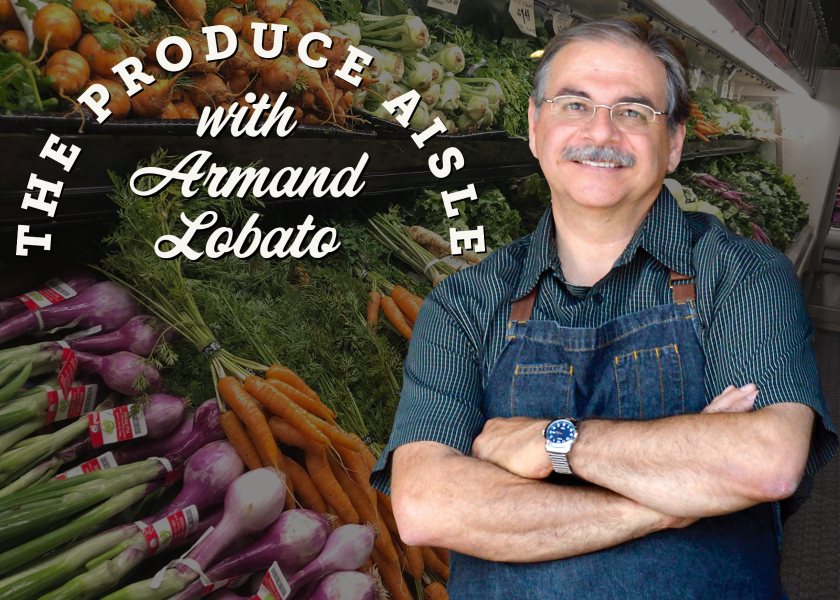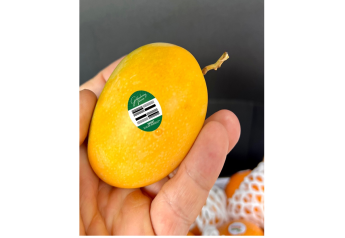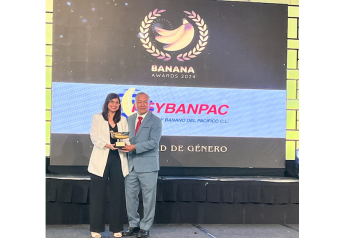Loose grips sink (produce) ships

I’ve always admired Benjamin Franklin. As one of the Founding Fathers of our country, he was an adept statesman, inventor, printer, philosopher and prolific writer, along with having many other astounding qualities. I especially like him because he was an all-around, common-sense smart guy.
Old Ben is credited with saying, “Beware of little expenses; a small leak will sink a great ship.”
In the produce aisle, this quote fits well when talking about shrink. Shrink, in simplest terms, is the difference between what a retailer should earn for goods, versus what the retailer actually takes in.
For example, suppose a 40-pound case of bananas retails for 59 cents per pound. Ideally this would come to $23.60. Then, due to normal circumstances of handling and ultimately selling this case of bananas, some fruit becomes overripe, damaged or otherwise unsellable, and you end up only selling 35 pounds. The 5-pound difference, or $2.95, is your shrink.
Lose your grip and gross profit drops while shrink goes up.
Multiply this example with all the cases of all commodities; over time, and as our friend Ben Franklin points out, the small leaks will indeed sink your ship — er, your produce department.
Having some shrink is normal, even expected. After all, you must consider that you will trim some products and cull some product from every case due to decay or other defects, among a host of other probabilities that, despite your closest attention, will rob your produce department of at least an average of 6% to 10% of your total potential retail amount. It’s the nature of managing any perishable department.
However, shrink “leaks” happen all the time, both large and small. And it’s your job as a produce manager to be vigilant at every critical control point.
Related: Read more industry insight from Armand Lobato
Strive to maximize sales and minimize losses by following these few points:
Accurate ordering is the main critical control point
If you order only what you need until you receive your next delivery, taking care to not overorder, that is half the shrink battle. Allow yourself ample time to take careful inventory and write your order. Consider all factors such as projected overall sales, ad movement, quality, display quantities and more when ordering. If your produce department is fully stocked and your backroom and cooler is empty when your new order arrives, you’ve nailed it.
Receiving, care and handling
Ensure your order investment is promptly and properly put away in dry or refrigerated areas as applicable. Handle produce carefully to ensure no damage occurs and that anything requiring special attention receives it, such as bananas de-lidded or leafy greens prepared and crisped. Be consistent. Have a “place for everything and everything in its place” mentality so everyone knows where to go for each item every day for maximum ordering and productivity efficiency.
Rotation should be second nature to everyone in the produce crew
Whether it’s a load being put away or a display getting stocked, ideally, everything should be faithfully rotated every day, every shift, every stocking trip. Any shortcut taken is a potential shrink leak, but inadequate rotation is a loss just waiting to happen.
"Paper shrink” and other potential leaky points abound
If you can imagine it, it can happen. Keep an eye on your billing. Check off your inbound invoice; do pack sizes match? Are you short anything? Report discrepancies right away. Are your cashiers ringing up things correctly? Frequent ID tests help. Do they know radicchio from red cabbage? Conventional versus organic? Can you repurpose culled product somehow or reduce the price to minimize loss? Also, run a periodic report; are prices correct in the system? Are outside departments, such as deli or the salad bar, paying retail for their produce purchases? They should be, as these are items that you’re held accountable for returning a set retail amount.
Ships or produce departments, large and small, are vulnerable to common, shrink leak points. Protect your, um, “Benjamins” from slipping through these cracks.
Armand Lobato works for the Idaho Potato Commission. His 40 years of experience in the produce business span a range of foodservice and retail positions.







